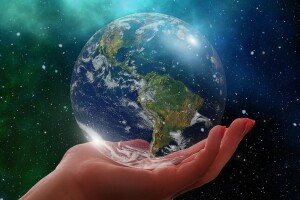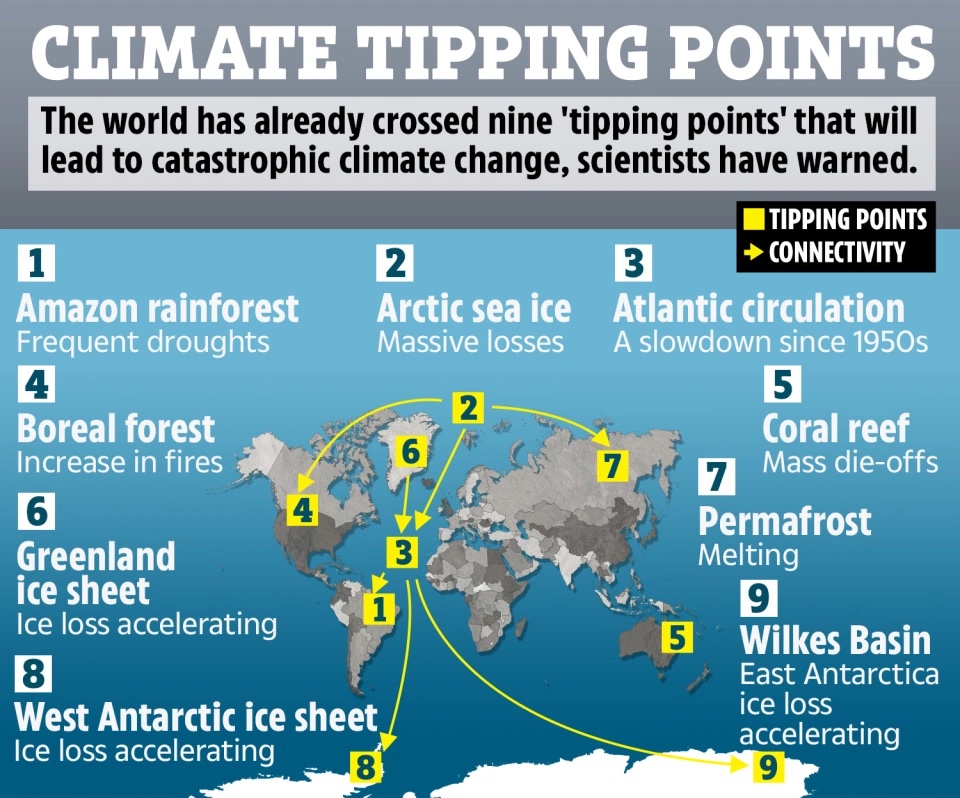Respect: The First Step in ‘Saving’ Nature
Jun 4th, 2021 | By admin | Category: Environment/SustainabilityBy Suzanne York.
It seems likely that humans will learn the hard way that we are not the center of the planet, much less the universe. As a species, we act as if we can plunder and have our way with the Earth and ignore the consequences. Or worse, push any contentious problems onto future generations.
Some recent reports released in time for World Environment Day on June 5th are all about the ways humans are decimating other species and overexploiting natural resources, and call for a global effort to reverse course.
The State of Finance for Nature is a collaborative report that includes the United Nations Environment Programme and World Economic Forum, and urges a total investment in nature of USD 8.1 trillion is required between now and 2050 to overcome the climate change, biodiversity and land degradation crises.
UNEP Executive Director, Inger Andersen said that “Biodiversity loss is already costing the global economy 10 percent of its output each year.”
This report is taking an economic view of the problems, which is necessary to galvanize governments and businesses to begin to act. But this cannot be the long view. There really is no price on Nature. We need it, but Nature does not need us.
A new report by World Wildlife Fund focused on species most under threat from global warming. Some of the planet’s most iconic animals – such as penguins, bumblebees and hippos – may not make it. Even coffee plants are at risk due to higher temperatures (and with it, the sustainable livelihoods of small-scale farmers).
“Nature is our life support system, and its continued destruction is not only devastating local wildlife and communities, but creating a hotter, less stable planet, putting our very survival at risk,” said Mike Barrett, executive director of science and conservation at WWF-UK.
And yet another recent analysis warns of climate tipping points, where ice sheets and ocean currents can destabilize each other in a warming world, resulting in more tipping points, with unknown consequences for the planet.
Jonathan Donges, one of the analysts involved in the research, noted, “We’re shifting the odds, and not in our favour – the risk clearly is increasing the more we heat our planet.”
We’ve been warned, time and time again, and while serious efforts seem to be happening at last, the train has left the station and we need to catch it. Biodiversity loss, unstable weather patterns, melting ice sheets, fires in Siberia and the Amazon are just some of the main indicators that humans are reshaping the Earth.
If there is a glimmer of hope, it is that we have many of the solutions on hand to stem the tide. But we have to act now; talk is cheap, and initiatives need to be put in place faster than is happening.
Below are some ideas of what can be implemented today:
- Transition to clean energy – keep fossil fuels in the ground and invest in renewable energy
- Set aside land for nature and oceans – “30 by 30,” Nature Needs Half, Half Earth, Global Deal for Nature
- Rewilding – restore land to its natural uncultivated state
- Responsible consumption – get off plastics, end planned obsolescence of goods, take only what we need
- Ecological economics – implement sustainable economic systems that end economic disparities and support well-being
- Food and agriculture – end food waste, support alternative methods such as vertical farming, less meat consumption, end industrial agriculture that abuses animals, exploits human labor and pollutes the environment
- Women’s rights – support reproductive health and rights, access to family planning services
- Rights of Nature – Nature has a ‘right’ to thrive and not be exploited
There is much more, such as investing in practices based on traditional ecological knowledge, indigenous-led land management, and educating girls. It is all connected and is a movement away from centuries of exploitation – of the environment, but also of people.
One of the themes of this year’s World Environment Day is “Reimagine, recreate, restore.” Humans need to take this theme and apply it to our relationship with Nature. It is dawning on people that a course correction (to put it lightly) has to take place. If not for us, then for the sake of youth and future generations.
What is truly called for is bold, holistic approaches that redefine how we interact with other species and ultimately respect the web of life. This includes respecting one another. It’s time to implement real changes like the ones listed above. No one knows what is going to happen, but if we stick to business as usual it looks pretty certain that we will come close to destroying the only home we have.
In support of World Environment Day 2021 and beyond, we can start by changing the view of entrenched, western ideas of dominion over the Earth to one of having a sacred duty to respect and protect it.
Suzanne York is Director of Transition Earth.



![[Image by Gerhard G. from Pixabay]](http://populationgrowth.org/wp-content/uploads/2021/06/elephant-line-large-file-1024x341.jpg)